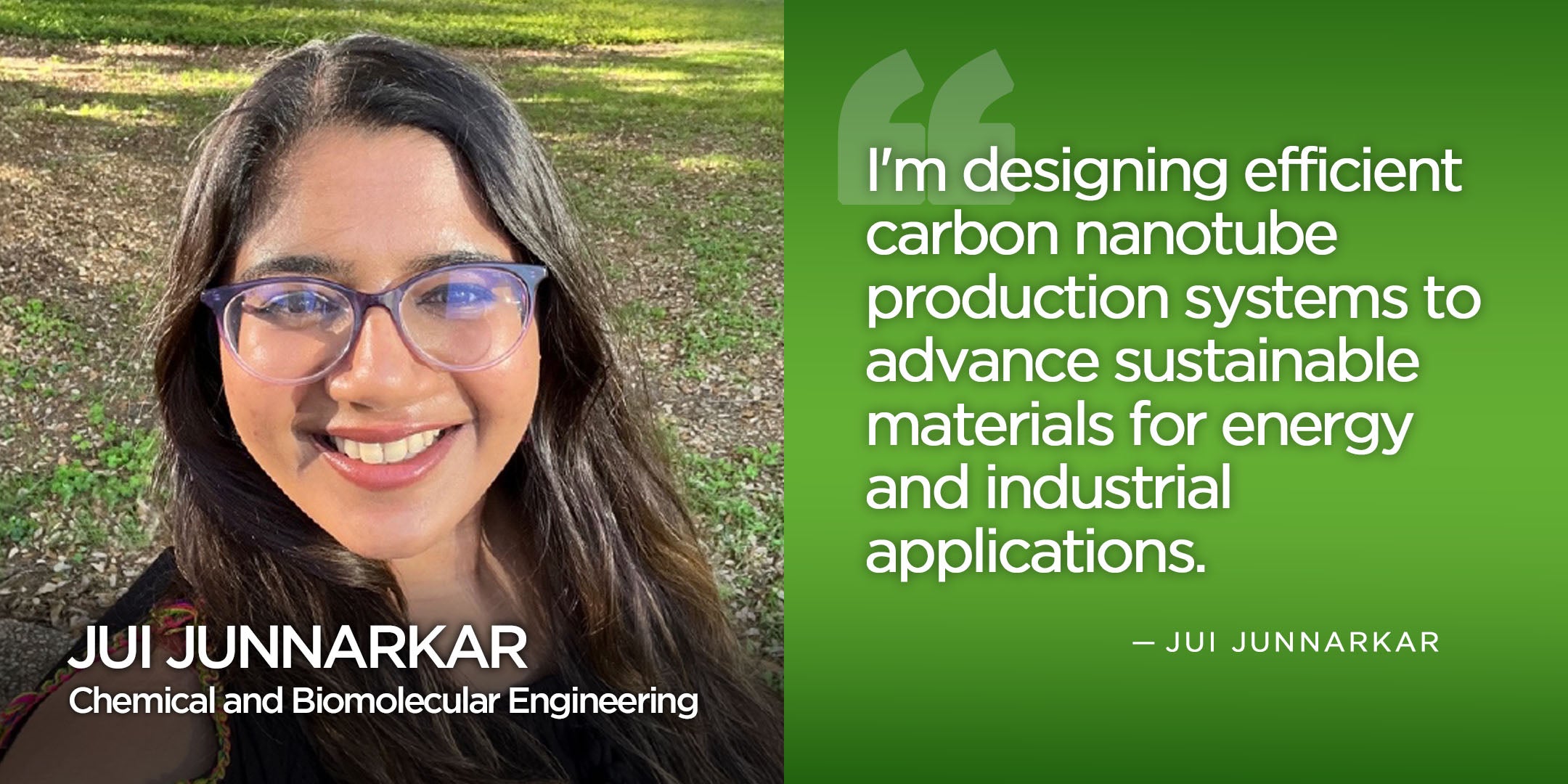Meet Jui Junnarkar
Department: Chemical and Biomolecular Engineering
Year in Graduate School: Fourth Year
Degree and Expected Graduation Date: Doctor of Philosophy (PhD), December 2026
Hometown: Pune, India
Research Focus
What is the overall problem your thesis will help to address?
Carbon nanotubes (CNTs) are tiny, super-strong materials with exceptional properties, making them essential for applications in electronics, energy storage, and more. My research focuses on improving CNT synthesis using a plasma-based process to create the particles needed for growth. Additionally, I leverage computer simulations to study CNT reactors, helping to make the process more efficient.
What are you specifically investigating?
I investigate the use of an RF inductively coupled plasma system to optimize CNT synthesis through precise control of catalyst nanoparticle generation. By fine-tuning conditions like power and gas flowrates, my work aims to enhance catalyst utilization rates. My computational fluid dynamics (CFD) simulations of reactor environments provide insights into transport and kinetic phenomena, guiding the identification of optimal operating conditions.
Research Outputs and Impact
What are some products from your research so far?
I’ve presented my research at several conferences, including:
- “Catalyst Nanoparticle Generation Routes for Deep Injection Floating Catalyst Chemical Vapor Deposition” – NT24 Conference, Boston, MA, June 2024
- “Catalyst Nanoparticle Generation for DIFCCD” – 2023 AIChE Annual Meeting, Orlando, FL, November 2023
Are there any publications or creative scholarly items coming soon?
Yes! An upcoming paper explores CNT synthesis and highlights how transport phenomena within reactors, analyzed through CFD simulations, influence the process. Stay tuned for its release.
What funding supports your work?
My research is supported by the SHELL Carbon Hub fellowship and ARPA-E funding (DE-AR0001015).
Sustainability and Future Directions
What is the most pressing sustainability challenge the world is facing?
The transition to a low-carbon economy is one of the most urgent challenges, requiring innovative solutions to reduce emissions, improve energy efficiency, and replace conventional materials with sustainable alternatives.
How does your research contribute to sustainability?
By enhancing CNT production efficiency and reducing its environmental impact, my work supports the development of sustainable materials for energy and industrial applications. Improved plasma processes and reactor designs are critical to achieving these goals.
Career Aspirations
What are your career aspirations post-graduation?
I aspire to take on a leadership role in addressing sustainability challenges, whether in academia or industrial research and development. My goal is to develop impactful solutions that advance the global effort toward a more sustainable future.
Additional Information
What else would you like to share about your research or achievements?
In addition to my primary research, I’ve had the privilege of presenting at major conferences and receiving recognition through fellowships. These experiences have allowed me to connect with experts, refine my work, and contribute meaningfully to sustainability research.


